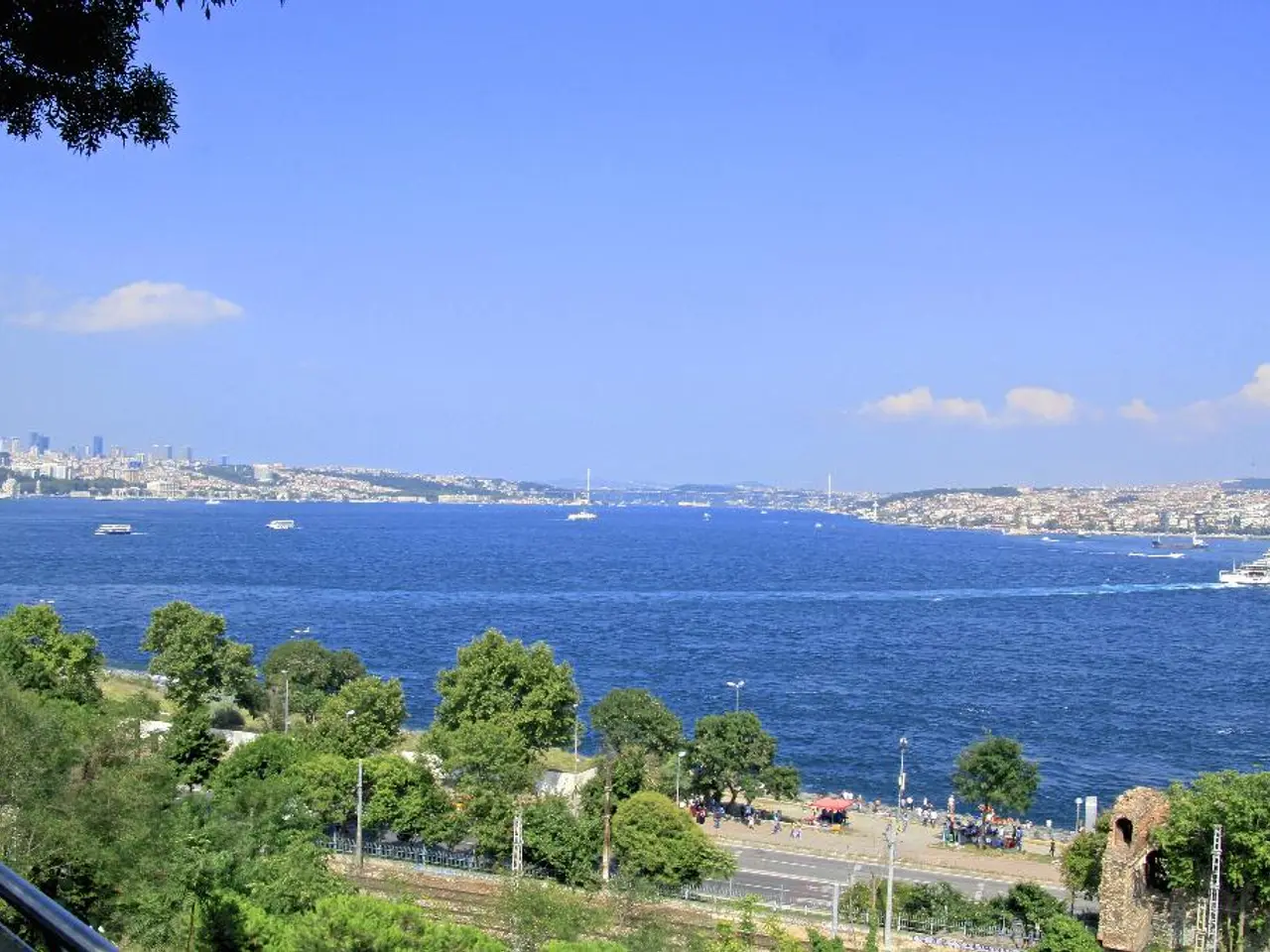Vacationers in the Baltics find capitalism crucial for their holidays.
The Baltic Sea coast of Germany has emerged as a popular destination for vacationers, but a recent analysis by the "Dream House Lottery" platform reveals that this coastal retreat is becoming increasingly costly.
Glowe and Binz on the Baltic Sea island of Rügen, known for their wide sandy beaches, are popular vacation spots where beach chairs are priced at a hefty 18 euros per day. These prices are the highest nationwide, making them a shock to many vacationers' budgets.
Other Baltic Sea resorts like Kühlungsborn, Juliusruh, and Timmendorfer Strand also charge a high price for beach chairs, adding to the overall cost of a beach vacation. In contrast, the North Sea coast offers a more affordable alternative, with an average cost of a day in a beach chair at 12.17 euros.
The higher cost of beach vacations on the Baltic Sea compared to the North Sea is influenced by several factors. Coastline and landscape differences play a significant role. The Baltic Sea coast often features wider and sandier beaches, which attract more tourists seeking sunbathing and relaxation. This increased demand drives up accommodation and service prices.
The Baltic Sea coast also offers a broad range of recreational activities, including resorts and spa uses, appealing to a diverse group of visitors. This multifunctionality and capacity to supply coastal cultural ecosystem services lead to potentially higher tourism demand and prices for accommodations and services.
Demand patterns and economic factors also contribute to the higher costs on the Baltic Sea. Due to differences in local culture and tourist preferences, the Baltic Sea may see a higher concentration of visitors seeking experiential, resort-based vacations, pushing up prices. Economic pressures such as inflation and higher travel costs also broadly affect tourism prices, and regions with stronger demand may reflect this more prominently in vacation costs.
Accommodation pricing is another factor. Although specific price comparisons for Baltic Sea vs. North Sea are not detailed, typical accommodation prices in German coastal cities like Sankt Peter-Ording (North Sea side) range around £122 per night for hotels, with specialized wellness or resort hotels possibly costing more on the Baltic coast.
Price-conscious sunbathers can find more affordable options in Husum, Dornum, or Utersum, where beach chairs are priced at 10 euros per day. Spiekeroog charges 5.50 euros per day and person for beach chairs, while Wangerooge and Norderney have beach chairs priced at 4.90 euros each. Juist and Borkum offer beach chairs at 4.80 euros, and Pellworm and Westerdeichstrich near Büsum provide beach chairs for 7 euros per day.
Altefähr on Rügen has a tourist tax of only 1.20 euros, making it a relatively affordable destination compared to other spots on the island. However, the overall cost of a vacation on the Baltic Sea is still considered a luxury for many vacationers.
In conclusion, the combination of more tourist-friendly coastal geography, diverse and high-demand recreational offerings, and economic market dynamics leads to higher costing beach vacations on the Baltic Sea compared to the North Sea in Germany. Vacationers seeking a more affordable beach experience may want to consider the North Sea coast as an alternative.
Vacationers seeking a home-and-garden lifestyle during their travels might be surprised to find that the cost of a beach chair on the Baltic Sea coast of Germany can reach up to 18 euros per day, making it less affordable compared to the North Sea coast where prices average around 12.17 euros. Regardless, the Baltic Sea's home-and-garden and travel experiences, including diverse recreational activities and resort offerings, continue to attract large numbers of visitors.





